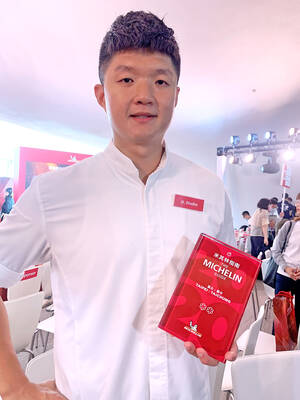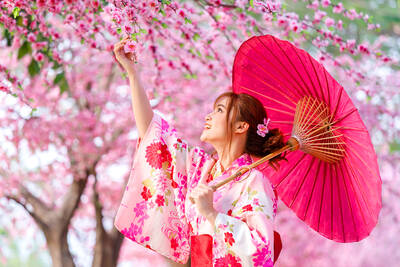對話 Dialogue
清清:你怎麼了?幹嘛這麼生氣?
Qīngqing: Nǐ zěnme le? Gàn má zhème shēngqì?

PHOTO: SHUTTERSTOCK / 照片:SHUTTERSYOCK提供
華華:呴!我玩這個遊戲已經玩了快一個小時了,結果一直輸、一直輸,就沒有一次是贏的,真是氣死我了!
Huáhua: Hōu! Wǒ wán zhège yóuxì yǐjīng wánle kuài yí ge xiǎoshí le, jiéguǒ yìzhí shū, yìzhí shū, jiù méiyǒu yí cì shì yíng de, zhēnshì qìsǐ wǒ le!
清清:不過是玩個遊戲而已,何必這麼認真呢?
Qīngqing: Búguò shì wán ge yóuxì éryǐ, hébì zhème rènzhēn ne?
華華:我就是不服氣啊!為什麼我的運氣總是這麼差?
Huáhua: Wǒ jiùshì bù fúqì a! Wèishénme wǒ de yùnqì zǒngshì zhème chà?
清清:玩遊戲本來就有輸有贏,贏了還是輸了有這麼重要嗎?
Qīngqing: Wán yóuxì běnlái jiù yǒushū yǒuyíng, yíngle háishì shūle yǒu zhème zhòngyào ma?
華華:當然囉!看到自己的積分增加了,或是又破關了,那種快樂是無法形容的,難道你不這麼認為嗎?
Huáhua: Dāngrán luo! Kàndào zìjǐ de jīfēn zēngjiā le, huòshì yòu pòguān le, nà zhǒng kuàilè shì wúfǎ xíngróng de, nándào nǐ bú zhème rènwéi ma?
清清:我玩遊戲一向就只為了休閒娛樂、打發時間,沒有你這麼入迷。
Qīngqing: Wǒ wán yóuxì yíxiàng jiù zhǐ wèile xiūxián yúlè, dǎfā shíjiān, méiyǒu nǐ zhème rùmí.
華華:好吧!那你就不要再跟我講話了,我現在就是很生氣,小心等一下忍不住罵了你,就不要怪我喔!啊……
Huáhua: Hǎoba! Nà nǐ jiù búyào zài gēn wǒ jiǎnghuà le, wǒ xiànzài jiùshì hěn shēngqì, xiǎoxīn děngyíxià rěnbúzhù màle nǐ, jiù búyào guài wǒ o! A…
翻譯 Translation
Qingqing: What’s wrong with you? Why are you so angry?
Huahua: Ugh! I’ve been playing this game for almost an hour, and I keep losing, constantly losing. Not a single win! It’s so frustrating!
Qingqing: It’s just a game; why take it so seriously?
Huahua: I just can’t accept it! Why is my luck always so bad?
Qingqing: Playing games is meant to have both wins and losses. Is it really that important whether you win or lose?
Huahua: Of course! Seeing my score increase or clearing a level brings indescribable joy. Don’t you feel the same?
Qingqing: I play games for leisure and entertainment, just to pass the time. I’m not as obsessed as you are.
Huahua: Fine! Then just don’t talk to me anymore. I’m really angry right now, so be careful, I might end up scolding you in a moment. Don’t blame me later! Arghhh…
生詞 Vocabulary
1. 贏 (yíng) win
2. 輸 (shū) lose
3. 何必 (hébì) why bother, there’s no need to
4. 積分 (jīfēn) points
5. 破關 (pòguān) clear a level, pass a stage
6. 形容 (xíngróng) describe, characterize
7. 打發 (dǎfā) get rid of, pass
8. 入迷 (rùmí) to be fascinated, to be obsessed with
教材音檔 Audio Files
國立清華大學華語中心提供
By National Tsing Hua University Chinese Language Center:

A: From Logy and MUME to JL Studio, winners on the Asia’s 50 Best Restaurants list are all high-end fine dining restaurants. B: Really? I wonder how a meal costs there? A: I once dined at RAW, which used to be on the list: the meal cost NT$6,888 each plus 10 percent service charge. B: But fine dining establishments usually offer better food, decor and service, so they are more pricey. A: Let’s start saving money now, so we can go once a year. A: 獲選為2024「亞洲50最佳餐廳」的Logy、MUME、JL Studio,都是高檔的「精緻餐飲」。 B: 真的嗎?不知道吃一餐多少錢? A: 我去吃過曾上榜的RAW,每個人就要6,888加一成。 B: 不過精緻飲食餐廳的食物、環境、服務都比較好,自然也不便宜。 A: 我們來存錢吧,每年去吃一次。 (By Eddy Chang, Taipei Times/台北時報張聖恩)

Food shortages have been experienced by people across the world throughout the centuries, but these challenges have driven people to cope, like the Taiwanese, who have found creative culinary uses for all parts of their animals, including blood. Pig’s blood cake, or rice blood cake, consists of sticky rice mixed with animal blood. After being steamed, the cakes are often cut into rectangles and skewered onto bamboo skewers so people can enjoy them while walking. It can also be braised or cooked in soup. 糧食不足是各國多少世紀以來的難題,但面對困境,台灣人學會善加利用牲畜的每個部位,包含血液。豬血糕又稱做米血糕,在糯米中混入豬血後,蒸熟後切成長方形,插上竹籤方便邊走邊吃,還可以滷豬血糕或煮湯。 shortage (n.) 缺少,匱乏 rectangle (n.) 長方形 There are regional variations in how pig’s blood cake is eaten. In northern Taiwan, people

Japan has long been a popular tourist destination for people worldwide. Travelers love to experience the country’s unique culture, stunning sites, and delicious cuisine. Springtime is a particularly popular period to visit. Cherry blossoms, or sakura, are in full bloom, and tourists and locals alike can take part in hanami. __1__ The word hanami literally translates to “flower viewing.” While hanami can be as simple as taking a stroll through a park with blooming cherry trees, the activity is typically much more elaborate. __2__ They can spend the entire day eating food, chatting with their companions, and of

US health officials are putting more than US$100 million toward ramping up surveillance of bird flu in cattle and people amid rising concerns that the outbreak has spread more widely than reported. The Centers for Disease Control and Prevention (CDC) and the Food and Drug Administration (FDA) will use the funding to detect and track the virus, called H5N1, that’s been spreading in wild birds, poultry and domestic cows, according to a statement Friday last week. Scrutiny of the CDC’s response to health crises has risen after widespread criticism for inadequate early testing for emerging health threats such as COVID